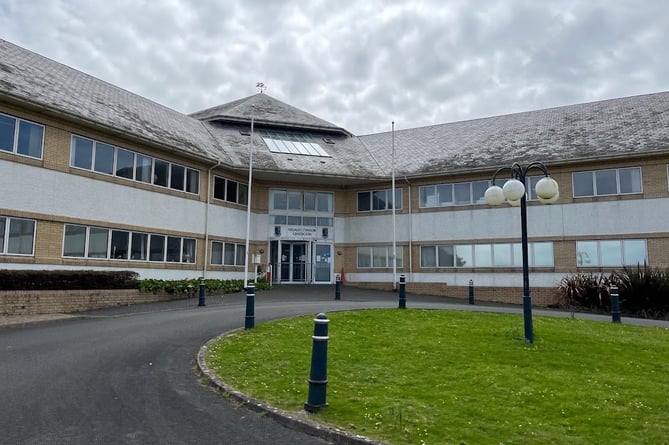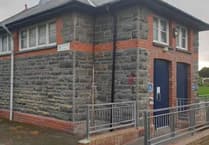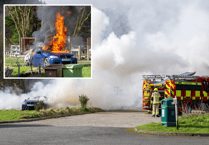THEORETICALLY, Gold Command was consigned to the dustbin of autocratic rule a month ago.
The system which saw feeble councillors surrender democratic control of Ceredigion council to the chief executive, augmented by other unelected officials, for far longer than was justified by Covid infection levels was finally scrapped in mid-April. Or so we thought.
The reality is disturbingly different. Instead of finally and fully yielding to force of public indignation and anger about the executive’s prolonged takeover, the authority’s administration is now engaged in a blatant attempt to cling on to one crucial segment of control, and therefore of power.
It’s continuing, on the flimsiest of pretexts, to bar the public and press from meetings of the council, thus thwarting an absolute and longstanding legal right enshrined in The Public Bodies (Admission to Meetings) Act 1960. To frustrate this entitlement is a flagrant assault on democracy.
The council tells me: “Covid-19 levels in Ceredigion remain high, and in order to do what is possible to keep councillors and staff safe we are asking that members of the public and the press view council meetings on the council’s Facebook page for the time being.”
High Covid levels? That looks like a bizarre claim. According to government data, between 10 and 16 May the number of confirmed cases in the entire county was a mere 28. That’s out of a population of about 73,000. In the previous seven days, there were no cases at all.
So let’s look at the authority’s annual meeting on 13 May, its first gathering since this month’s elections.
If, as the council claims, Covid levels are high, why were councillors, together with staff, allowed to congregate in close proximity to each other in the confines of the council chamber in Aberaeron?
If the council is intent, as it says it is, on avoiding infections among councillors and staff by excluding public and press, how does that square with allowing nearly 40 councillors, from all corners of Ceredigion, to sit around together, in the company of council staff, for a couple of hours or so?
The evidence of video-footage from that meeting is not reassuring. It shows no social distancing, and scarcely any wearing of face-masks.
And so to the claim that the council is “asking” the great unwashed to be content with Facebook. That’s misleading nonsense. The truth here is very straightforward: public and press are being excluded from the council chamber. At the same time, the authority will be under no illusion that, in barring the press, reporters will be denied the kind of post-meetings contact with councillors that is so vital for keeping the public properly informed. That’s pretty serious.
What’s the point in singing about that Tregaron LSD ring that destroyed lives?
IN THE mid-1970s, Richard Kemp, a gifted chemist, and Christine Bott, a doctor who for a short time worked at Bronglais Hospital, were key members of a Wales and London-based consortium manufacturing and distributing large quantities of a particularly pure form of the hallucinatory drug LSD.
They lived in a primitively-appointed cottage just outside Tregaron which included a third of an acre of sloping land, where they kept two goats and grew vegetables. They drove a battered long wheel-base Land-Rover which one day was replaced by a brand new Renault 4.
Early on the morning of Saturday 26 March 1977, the enterprise imploded when, after 13 months of observation, police raided 87 homes in Wales and England and made 120 arrests. Following a trial in Bristol the following year, Richard Kemp was jailed for 13 years, Christine Bott for nine years. Thirteen others also went to prison.
Operation Julie is the title of a rock musical being staged at Aberystwyth Arts Centre this summer which takes its name from the label that became attached to the marathon police investigation.
The tale has already been the subject of a television drama and several books.
The hope must be that this latest manifestation neither romanticises, much less glamorises, the story, because this actually wasn’t rock and roll.
It was a dangerous, wrong-headed enterprise that probably launched with the hope that LSD would promote human enlightenment and thus foster protection of the natural environment, but later became badly corrupted by money-making.
LSD was distributed indiscriminately, despite its potential to destroy lives. This was madness.
Christine Bott died of cancer in 2007. Fifteen years after her death, she recalls in a memoir just published two LSD experiences. In one: “The air shimmered. I stood close to the largest beech…I could see individual cells fitting together into a patchwork of soft colour…” In another: “I was shaking uncontrollably. Frozen with fear…Convinced I was dying I would not be told otherwise…”
So, heaven and hell. Making enormously widely available a substance with such potentially damaging power was vastly irresponsible.





